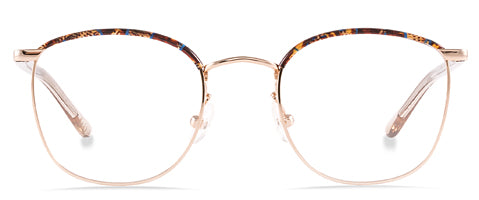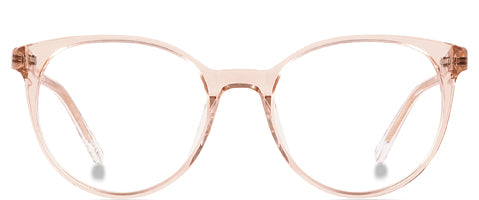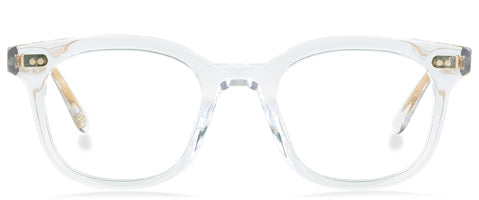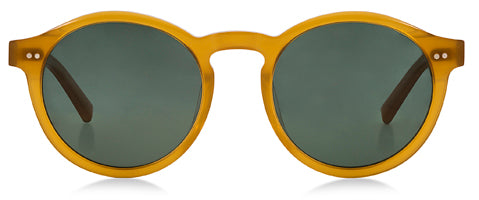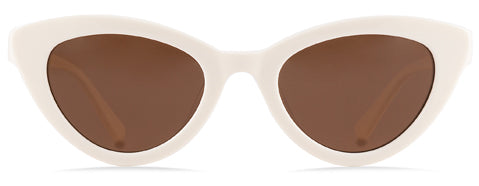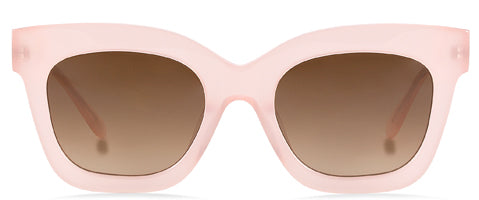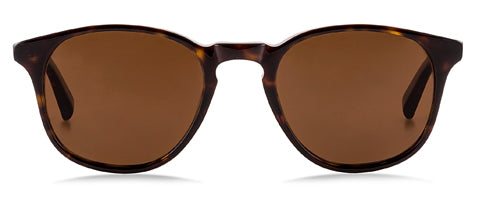You may not know this, but Bailey Nelson frames go through over 200 steps - mostly by hand - before being showcased in our beautiful stores and passed on to our customers. In a new series highlighting craftsmanship, we set Tom O'Dell (of O'Dell's Studios) a challenge: find London-based artisans and showcase their incredible skill and beautiful creations. In this first instalment we meet wood carver and furniture maker Mark Willett. Let's see how they got on...
Welcome to the Makers Series with Tom David O’Dell. In the first of this series, I’m joined by London-based woodworker, carver, furniture-maker and designer, Mark Willett.
TO: Mark, welcome - is that how you would describe yourself?
MW: That’s how I would like to be described one day, yes, certainly. I feel I’m on the journey towards that.
TO: How would you describe yourself now?
MW: Searching. I’m exploring all the possibilities with those aforementioned things, which are almost endless.
TO: Tell me about the start of your journey. How did it all begin? What made your first look at a piece of wood and a knife differently to before?
MW: I now work as a furniture maker. This has been my full time job since 2015.
On the side I carve these items which you can see around us [beautiful spoons, knives, bowls and small sculptural objects]. How I got here is quite a long story, but I’ll try to keep it short.
I was living in Australia when I read an article about an older guy who was passing on his trade as a cuckoo clock maker to a young guy. He was talking about the trade and his story; how he wanted to pass these old skills on to a younger generation. The story inspired me and made me think about what I value and what I wanted to do with my life.

TO: Did you do a course or did you go and ask for someone’s advice, or was it just trial and error?
A bit of both. I got myself down to the local DIY shop, I bought a sander and a saw and spent the afternoon hunting the streets for old pallets and bits of timber. Once I had these I started to work on some ideas I'd had in my head, trying to see what I could do.
I also did a NVQ course in carpentry and joinery, which taught me how to do things properly. [It may sound] crazy but the first thing I attempted to make was a table…
TO: And how did it turn out?
MW: If I looked at it now, it [would seem] horrendous but it was a starting point; it wasn’t until I moved back to London in 2014 that I started carving.
On social media I spotted other people doing it and thought, "That looks fun". So, I gave it a go. I hacked away at a bit of timber until it looked somewhat like a spoon. The piece still hangs up on my wall at home.
TO: When did you think this could be something more than a hobby?
MW: I think it wasn’t too long after [my first spoon], that I realised the possibilities: if you really push for something and you really want something, you can get it. It might not look like exactly how you had thought, but it’s a journey.
I enjoyed making things from scratch and improved spoon by spoon, knife by knife. I got to a point where I thought, "These are looking pretty good, I might try and sell something!"
TO: What was the first thing you sold?
MW: I think the first thing I sold was probably to my family, so you feel like you haven’t really achieved a sale.
TO: Because they’ll buy anything?
MW: Exactly. But shortly after that I sold a something at a market, just around the corner from here [Peckham]. I could have gone home after selling my first piece, it felt great!
I'm very critical and was thinking, "Was it good enough?" It never came back, so I guess the guy was pretty happy with it. I hope he still uses it!
TO: You work using hand tools and, I'm guessing, some machinery. Our customers rely on buying BN glasses so that they can see. Is there anything you rely on?
MW: Without it sounding too soppy, my wife. She’s the voice of reason and a sounding board. I can get very carried away and overwhelmed with things; she offers me space and keeps me a bit grounded.
TO: I’d like to hear about your process when making something. Obviously, it can be a long process, but, how you make something?
MW: I think it depends on the product. I’d like to say, [I’m a] person [who] thinks of an idea, executes it and it comes out just as I thought. But I’ve found that with timber, you start with an idea and [then] you have to adapt to work with the material - and you have to be okay with that change. The imperfections as well; I found that quite difficult at first, but again, it's something I’ve learnt to incorporate into my work.

TO: The process then, is it just find a piece of wood and start cutting?
MW: A lot of the smaller pieces are made from off-cuts of furniture. I try to utilise as much as I can from something that I’ve already made. [With] the turned stuff; it starts out as a log or piece of wood and it’s turned whilst it still has a high moisture content, and is then left to dry. It takes on different shapes; the surprise is how something turns out versus what you had in your head.
TO: Do you feel that more people are investing in well made, sustainable goods? Do you think that is changing for the better?
MW: Both. I think it has changed a lot from what I have seen over the last five or six years. I think that more and more people are talking about [sustainability], so it’s becoming more common but it’s also about consuming less.
I think if you’re going to have less things then you [should] have really nice products, beautiful pieces and items that are practical.
TO: Is that your way of thinking about things in life?
MW: I think people have become more considerate. You may be spending more, but it will last and you can pass it on to the next generation. I know they are simple products but there’s a story behind them and people like those stories.
TO: Are you going to design furniture under your own name?
MW: I [like the idea of] not being restricted; I want to make stuff that I don’t have to sell, and if they do then fantastic. I'm happy with how my small pieces have been selling and I'm already making large pieces of furniture for customers; shelving and tables. I hope to do more this year.
TO: For those who want to buy your work, where are you stocked?
MW: I'm at a shop in Kent, Kagu Interior, and there’s a shop in America who I'm speaking to at the moment. I'm always looking to work with independent stores and am also available for commissioned work. I also sell via my own website, MrWillett.com

TO: Going on to your influence - is there anyone that influences you?
MW: I guess the obvious thing is social media and Instagram - seeing woodworkers across the world. In Japan there are a lot of ancient traditions with woodwork that are still being utilised in their joinery. They are very particular with their type of joinery and it's very elegant, very beautiful. In America, woodwork is very highly regarded. A lot of people appreciate it and will pay for it, and there are a lot of guys making some stunning products.
Social media is a community. It’s not like the old days where you see one designer - who is now a multi-millionaire - and there’s no one on the ladder below. Now you can communicate with people in your position and there’s a mutual respect.
Another thing [we do] is train local young people and help them step up into employment. It’s in the form of making furniture and they come with almost an unadulterated mind of design. They may bring something – like a certain shape on the edge of a table that you hadn’t really thought about before. It’s fantastic. Sometimes you can overthink things, I certainly do that, so having these guys around is a constant inspiration and it helps with thinking a bit more laterally.
TO: And how does being based in London affect your work?
MW: I think, first and foremost - and this is one for me - slow down a bit. [London is] a very fast city and you can easily get caught up in that pace and miss so many amazing things. [If] you’re on a bus going into work be observant, put your phone away. Don’t assume [people don’t] want to talk to you. People are really friendly here, you can surprise someone by giving them a smile and you can find some amazing stories.

TO: Zooming in a bit, are there any particular shops or cafes or bars that you would like to point our readers to?
MW: There’s one local to me, a café called Pacific Social Club. Really good coffee, really honest food. They have amazing Japanese food there [and] supper clubs every week. I highly recommend that place.
TO: On to music. It’s a question I’m going to be asking everyone: is there a theme tune to your work or to your daily routine?
MW: As long as it’s not Bob Dylan I don’t mind. I don’t mind a bit of old-school hip hop and R'n'B. I’ve been listening to quite a bit of Kendrick Lamar, I’m enjoying that.
TO: And, as this is part of a series of interviews, are there any other makers you would recommend to us?
MW: There are some amazing potters around, I’ve got a good friend who is a ceramicist and she does amazing work. She goes by the name 'Lazy Eye Ceramics' – she’s great.
For more information visit Mark's website and online shop.
Mark wears the Yeats.
IG: @Mr_Willett
Interview and lead image by @OdellsStudios

